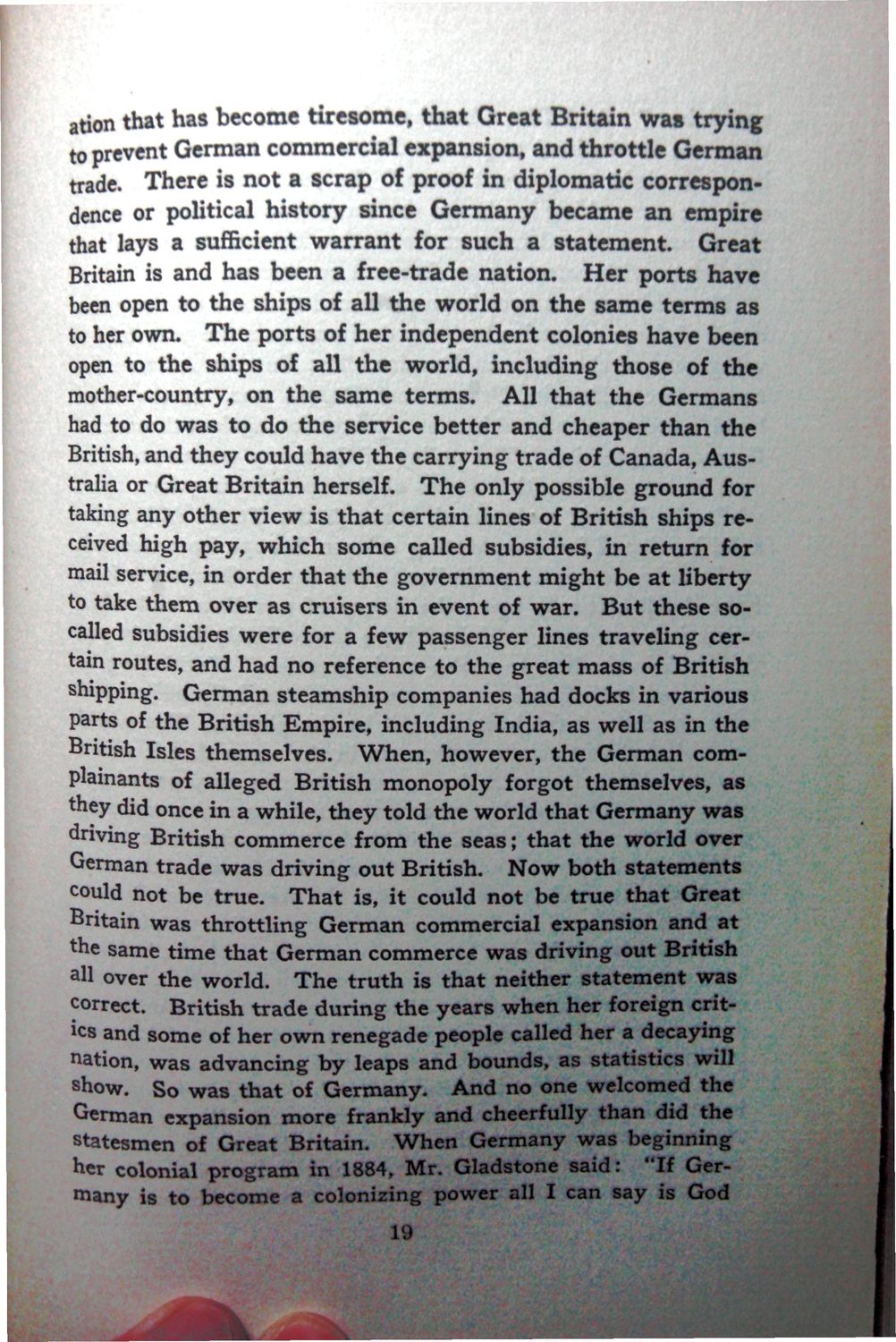| |
| |
Caption: War Publications - WWI Compilation 1923 - Article 25
This is a reduced-resolution page image for fast online browsing.

EXTRACTED TEXT FROM PAGE:
ation that has become tiresome, that Great Britain was trying to prevent German commercial expansion, and throttle German trade. There is not a scrap of proof in diplomatic correspondence or political history since Germany became an empire that lays a sufficient warrant for such a statement. Great Britain is and has been a free-trade nation. Her ports have been open to the ships of all the world on the same terms as to her own. The ports of her independent colonies have been open to the ships of all the world, including those of the mother-country, on the same terms. All that the Germans had to do was to do the service better and cheaper than the British, and they could have the carrying trade of Canada, Australia or Great Britain herself. The only possible ground for taking any other view is that certain lines of British ships received high pay, which some called subsidies, in return for mail service, in order that the government might be at liberty to take them over as cruisers in event of war. But these socalled subsidies were for a few passenger lines traveling certain routes, and had no reference to the great mass of British shipping. German steamship companies had docks in various parts of the British Empire, including India, as well as in the British Isles themselves. When, however, the German complainants of alleged British monopoly forgot themselves, as they did once in a while, they told the world that Germany was driving British commerce from the seas; that the world over German trade was driving out British. Now both statements true. That is, it could not be true that Great Britain was throttling German commercial the same time that German commerce was c all over the world. The truth is that neitl correct. British trade durine the years whc own renegade people nation, was advancing b y leaps and bounds, as statistics will show. So was that of Germany. And no one welcomed the German expansion more frankly and cheerfully than did the statesmen of Great Britain. W h e n Germany was beginning her colonial program in 1884, Mr. Gladstone said: "If Germany is to become a colonizing power all I can say is God • JM 19
| |